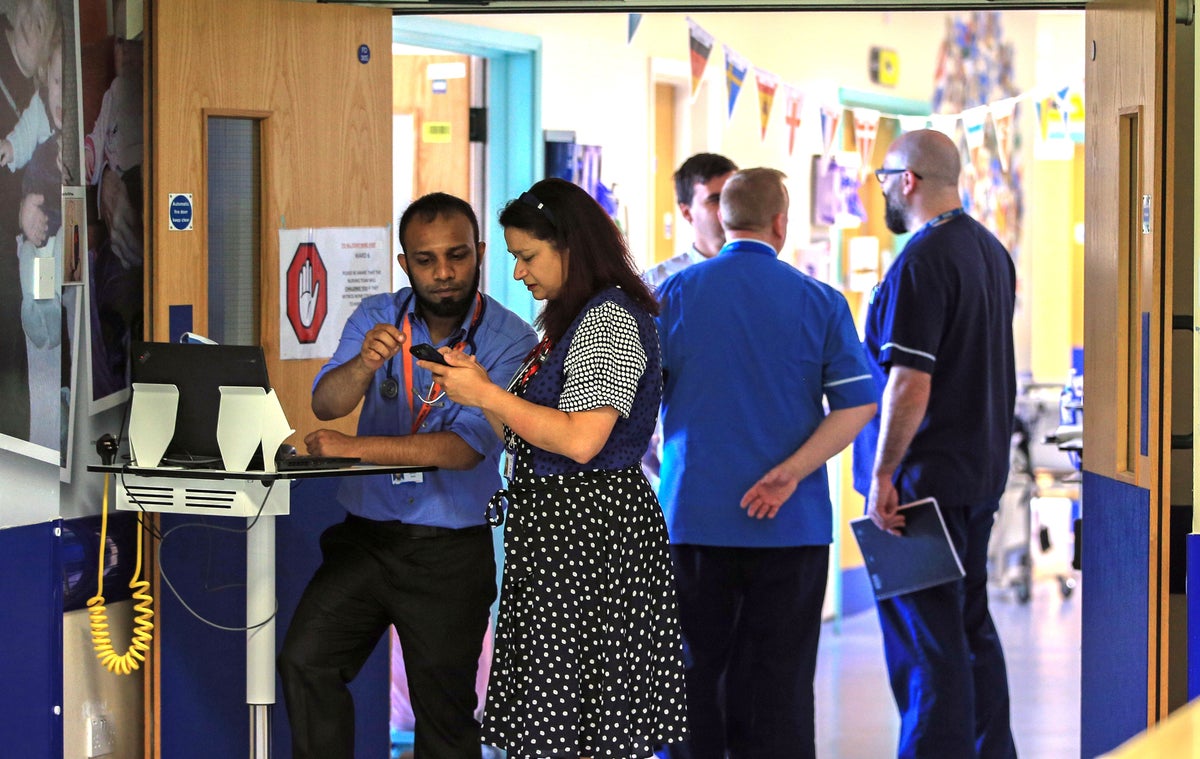
The NHS across the UK is already facing a two-tier system by stealth an expert has warned, following leaks of Scottish health policy plans.
A ‘two-tier’ healthcare system is already developing across the UK, think tank the Institute of Public Policy Research has said, as waiting lists push patients towards more paid for care.
The comments come following reports by the BBC revealing NHS leaders in Scotland have discussed creating a two-tier system, amid concerns over the sustainability of healthcare services in the country.
Chris Thomas, head of the Commission on Health and Prosperity, for the IPPR told the Independent: “even beyond it becoming [forma] policy, to have a two-tier system, we’re worried that that’s happening anyway, across the UK.”
He said pointed to IPPR research earlier this year which found despite a “universal support” from political parties and public for the “founding principles for the NHS” that it is free, comprehensive and tax-funded there was a “growing movement to opt-out from NHS services” where patients face long waits or access issues.
Earlier this year, for example, Private Hospital Information Network (PHIN) estimated the number of people paying out of their own resources for hip operations between 2019 and 2022 has increased by 193 percent.
Mr Thomas said he was concerned the NHS across the UK was heading for the equivalent of the English education system or “at worst” a similar structure to dentistry or social care which he warned was “very much a two-tier system.”
However, he added: I think it’s probably a symptom of the underfunding I think, rather than something that feels imminent, or particularly on the table, but if funding is low, if the NHS is struggling for long periods of time to provide universal health care needs options, end up on the table...
“My biggest fear, if the NHS was to become really, really conditional on the ability to pay, the coalition that supports it, the political capital, it has…is dependent on it being one of the most universal health services we have, I’d be really nervous if it became more like Social Security, which only benefits a small number of people.”
According to reports from the BBC minutes from a meeting with high-ranking health officials were given the "green light" by NHS Scotland chief executive Caroline Lamb to discuss reform of a service which finds itself in crisis.
One of the suggestions, according to the report, would result in a "two-tier" system, where some people would pay for care.
Other suggestions included changing the "risk appetite from what we see in hospitals" by setting a target of discharging patients to their home for treatment within 23 hours.
Leaders also considered a review of the cost of long-term prescribing of drugs, pausing the funding of new drugs, applying a charge for freedom of information requests and sending patients home for care, according to the document, while saying there was a £1 billion hole in the service’s finances.
Immigration minister Robert Jenrick suggested on Monday the Government has no intention of introducing charges to the NHS in England.
The BBC reported that health service chiefs in Scotland have discussed asking the wealthy to pay for treatment.
Mr Jenrick told TalkTV: "I haven’t seen the story about Scotland. We certainly don’t have any intention to introduce charges to the NHS.
"There is an issue with people still not coming forward post-pandemic with conditions and the NHS has been surprised by people’s reluctance to present themselves for a range of different conditions."
Health Secretary Humza Yousaf said the Scottish Government’s policy "could not be clearer", adding: "Our National Health Service must be maintained to the founding principles of Bevan - publicly owned, publicly operated and free at the point of need."







